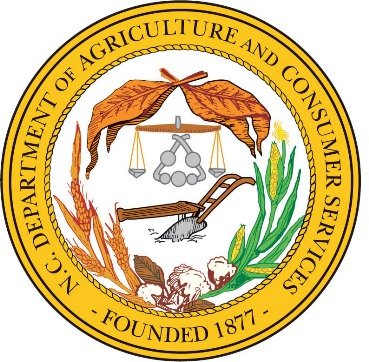Aug 27, 2021North Carolina: Flooded crops cannot be used for human food
Farmers whose crops were flooded by Tropical Storm Fred face not only the prospect of lower yields and loss of quality, but also the reality that those crops cannot be used for human food.
“Floodwater may contain sewage, harmful organisms, pesticides, chemical wastes or other substances,” North Carolina Agriculture Commissioner Steve Troxler said in a news release. “Also, wet foods may grow mold, which can produce toxins that can harm humans and animals.”
Crops and commodities exposed to floodwaters are considered adulterated by the U.S. Food and Drug Administration and cannot enter human food channels. They also cannot be used for animal feed unless they pass a testing protocol.
FDA provides the following guidance on crops and commodities exposed to flood waters:
“If the edible portion of a crop is exposed to flood waters, it is considered adulterated… and should not enter human food channels.
There is no practical method of reconditioning the edible portion of a crop that will provide a reasonable assurance of human food safety. Therefore, the FDA recommends that these crops be disposed of in a manner that ensures they are kept separate from crops that have not been flood damaged to avoid adulterating “clean” crops.”
The FDA guidance applies to all food crops, including:
- Surface crops such as leafy greens, tomatoes and corn;
- Underground crops such as peanuts and sweet potatoes;
- Crops with a hard-outer skin, such as watermelon and winter squash; and
- Commodities such as grains, nuts, corn and similar products stored in bulk.
The FDA guidance applies to crops that were flooded with water from rivers, creeks or streams. Pooled water, or rainwater that has collected in the field, is different from floodwater and is not likely to contaminate field crops.
The FDA has also provided guidance on the use of these crops and commodities in animal feed:
“The FDA reminds harvesters that crops harvested from flooded fields are often unacceptable because of contamination. Flood waters, which are different from pooled rainwater, may contain sewage, pathogenic organisms, pesticides, chemical wastes, or other toxic substances. Mold growth is another serious concern for flood impacted crops intended for use in animal food. Some molds produce mycotoxins, which are toxic to certain animals and people. People who eat food products from animals that ate the mold may also suffer health effects”.
The N.C. Department of Agriculture and Consumer Services is collaborating with Cooperative Extension at N.C. State University to help farmers determine safe uses for crops affected by Tropical Storm Fred’s flood waters.
Under an FDA process, farmers can submit a request to divert flooded crops or commodities to animal feed as long as they pass a testing protocol.
Before crops or commodities contacted by floodwaters can be used for animal feed, the farm must develop a diversion request detailing the process to assure the safety of the crop or commodity. Requests should be submitted to the NCDA&CS Food and Drug Protection Division.
To assist farmers submitting diversion requests, the department will provide testing at no cost to the farm. “This testing process can help farmers find alternative uses for their crops and commodities while maintaining confidence in the safety of our food supply,” Troxler said. “The department and the university are committed to helping in this recovery effort. We encourage farmers not to initiate any diversion actions until their request has been approved.”
Farmers should contact their local Cooperative Extension agents for further information and guidance. Contact information for local offices can be found at https://protect-us.mimecast.















